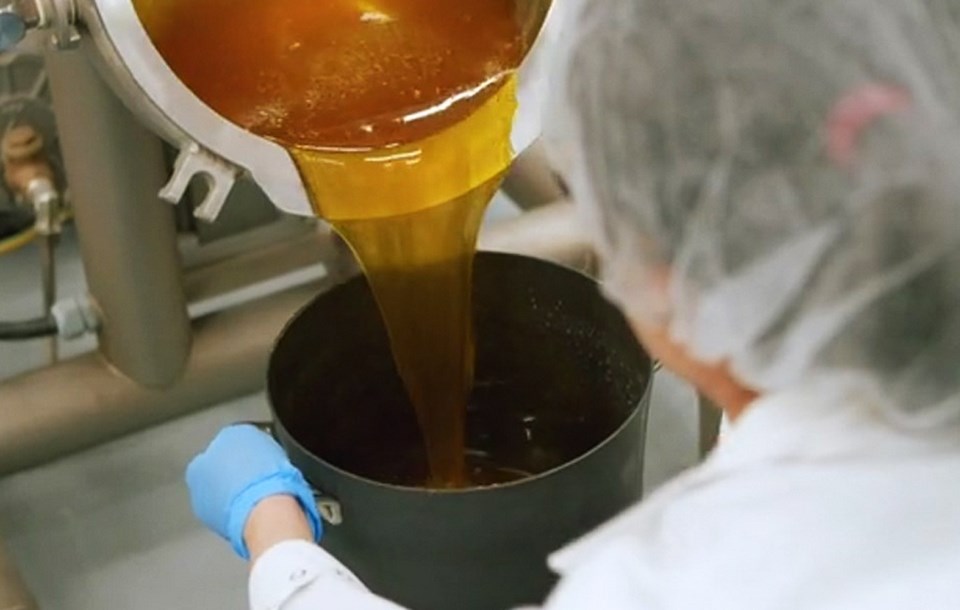A cannabis company that has a partnership with the large-scale Houweling Nurseries greenhouse in East Ladner will soon launch a line of edibles.
AgraFlora Organics International Inc. this week announced its subsidiary, Edibles & Infusions, recently completed the first phase of research and development trials at its licensed 51,000-Square-foot fully-automated manufacturing facility in Winnipeg.
With the development phase now complete, the company says it has created efficient processes for desired formulations and product varieties, and expects to enter the edibles market early this year.
The edibles facility will utilize its current state-of-the-art laboratory set up to produce approximately 60,000 pieces per eight-hour shift and can manage a variety of brands at once, given the efficient nature of the automated production line, the company states.
Another Delta greenhouse operation on 104th Street in East Ladner, Rubicon Organics, this week announced it received a Health Canada license sales amendment which will allow the direct sale of cannabis edibles, topical and concentrate products to provincially authorized distributors/retailers and registered patients, in addition to its dried and fresh cannabis product.
In a news release, James Fletcher, EIC co-founder and operational manager stated, supply contracts continue to move forward and they’re confident that their gummies will soon dominate the cannabis gummies category.
A recent Ontario Cannabis Store report showed the gummy category carried the highest market share in the edibles segment compared to chocolate and brownie alternatives, the company added.
The Delta greenhouse operation, meantime, called Propagation Services Canada, is working towards completing construction of its dry room infrastructure, which is to provide capacity for 500,000 grams of dried saleable product.
The operation says it is projected to begin executing on wholesale transactions in May 2021.
Meanwhile, this week the Centre for Addiction and Mental Health raised alarm regarding increased Canadian cannabis use during the COVID-19 pandemic.
According to a CAMH-led study, recently published in the Journal of Addiction Medicine, a majority of cannabis users consumed more in the past week than earlier in the pandemic.
“We know that regular use of cannabis leads to greater health problems, addiction and other mental health disorders,” said senior author Dr. Tara Elton-Marshall, independent scientist at the Institute for Mental Health Policy Research at CAMH in a news release. “Seeing a sustained increase in cannabis use during the first wave of the pandemic is a concern.”
The study consisted of three surveys during the early months of the pandemic in May and June of 2020, the CAMH explained.
Participants in each survey were asked if they had used cannabis during the previous week.
Those who used cannabis in the past week were also asked if their cannabis use was higher or lower than it was prior to the start of the pandemic.
The news release notes that, averaged over the three surveys, just over half (52 per cent) of those who had consumed cannabis in the previous week said that they were consuming it more than they were before the pandemic.
“The study authors speculate that cannabis use among cannabis users may have increased after the pandemic began for a variety of reasons, including social isolation, boredom, changes in daily routines and additional stress and anxiety about the future. The groups with the greatest risk for increased cannabis use included Canadians under 50, people with lower rates of post-secondary education, residents of Ontario and people who were worried about the impact of the pandemic on their finances.”
The report’s authors recommend public policy measures be implemented to address this increase in cannabis use.



